Quarantine in Cusco: Week 1
The side of Peru I never wanted to know about
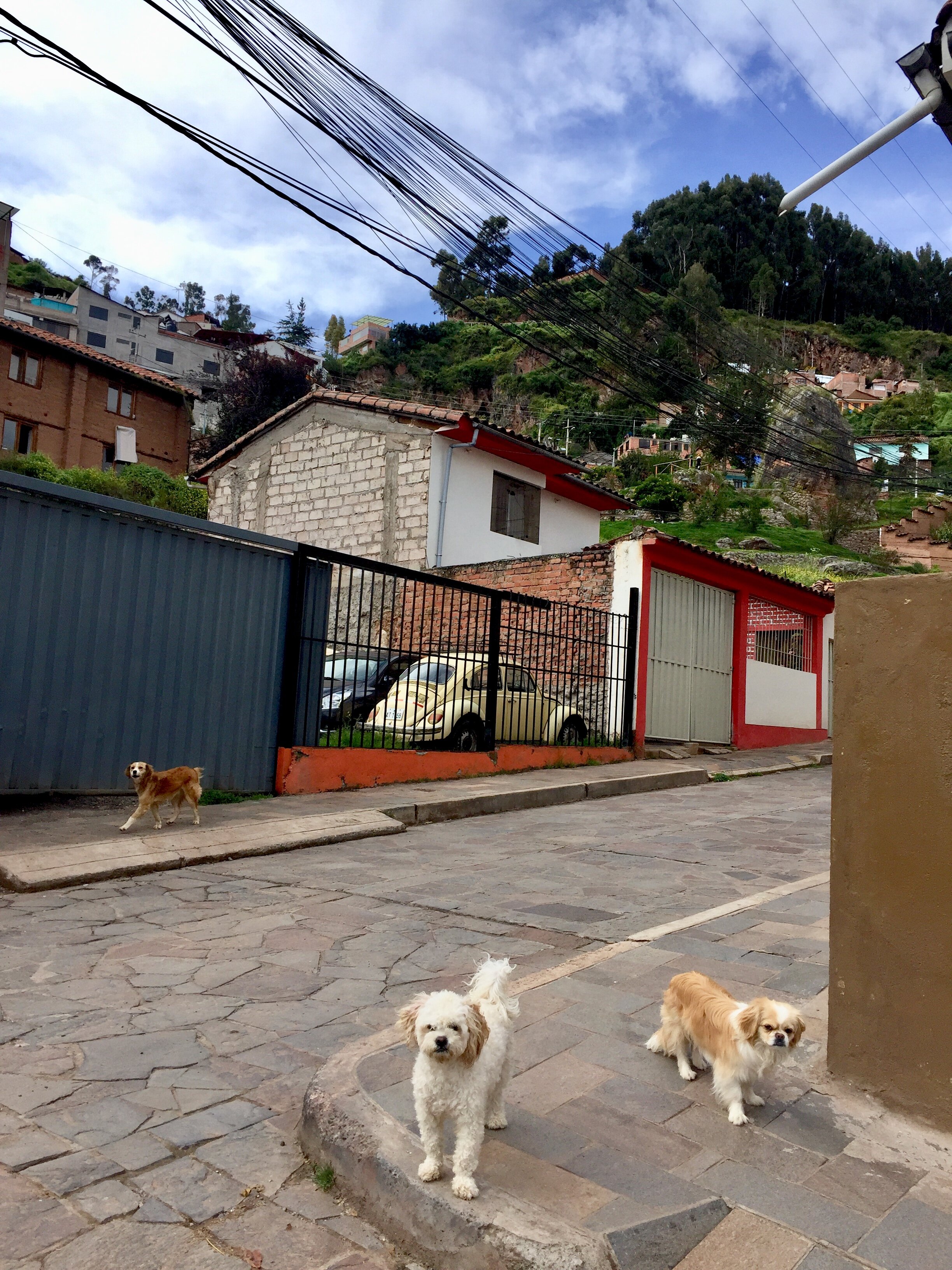
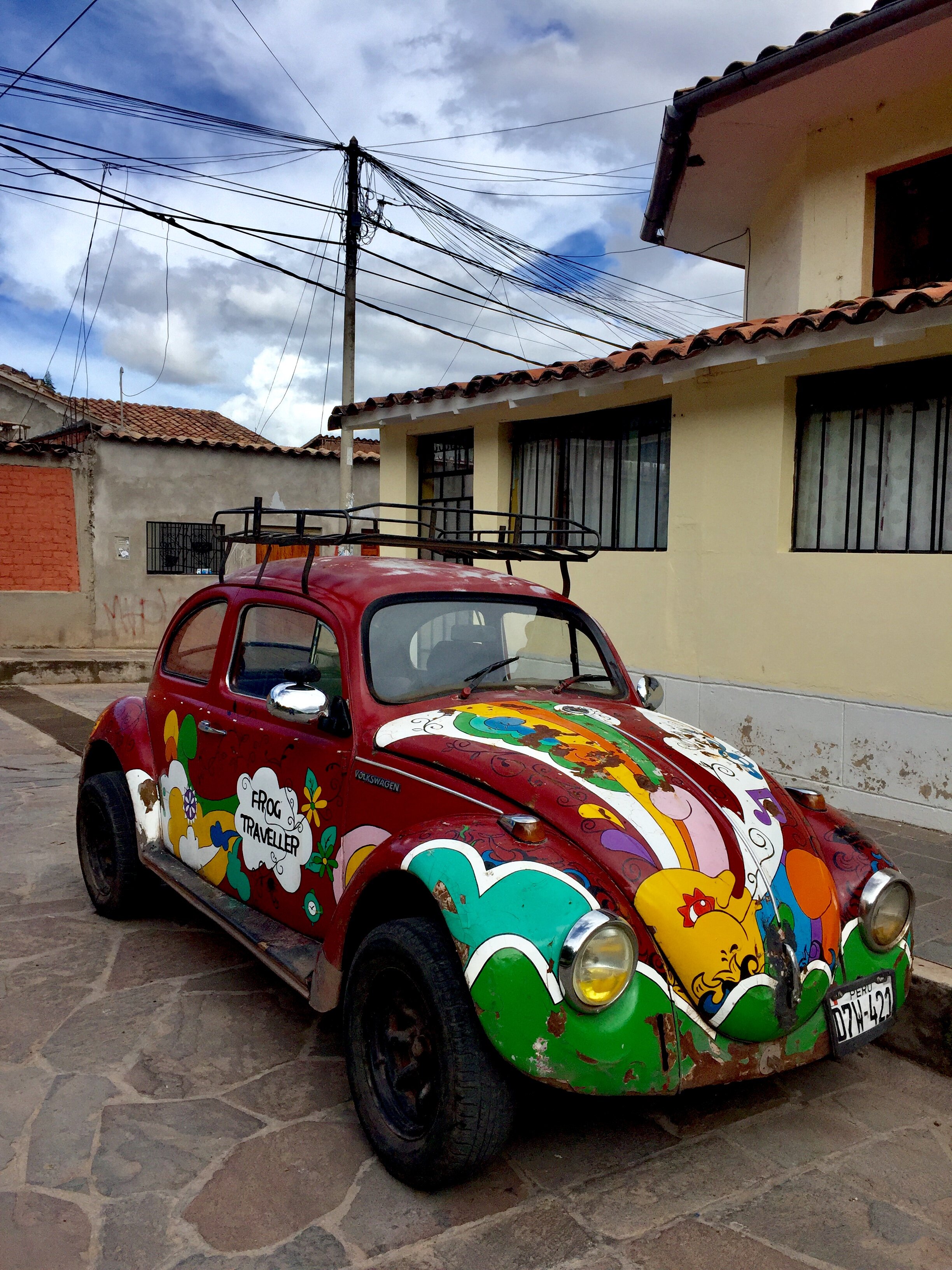
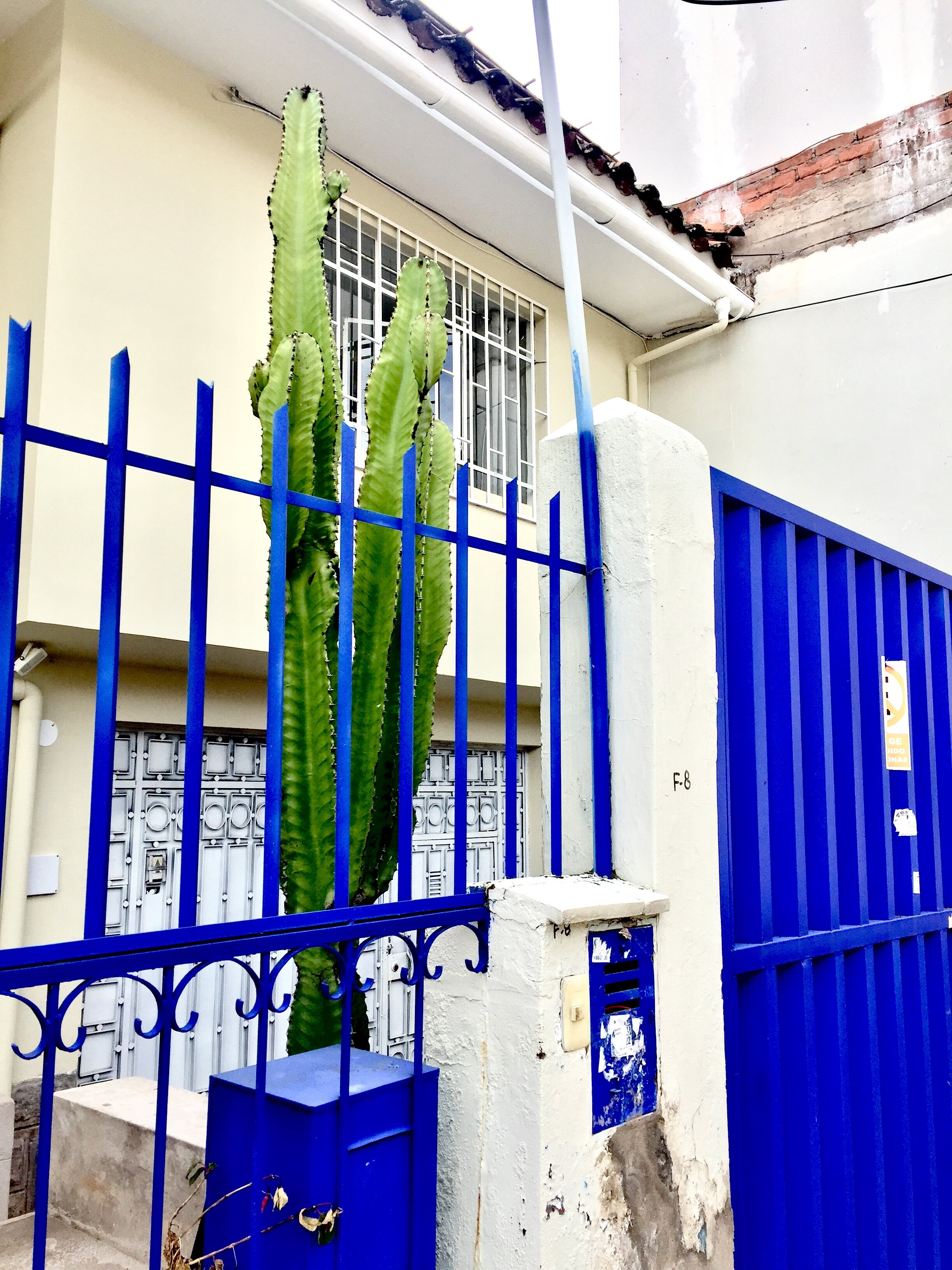
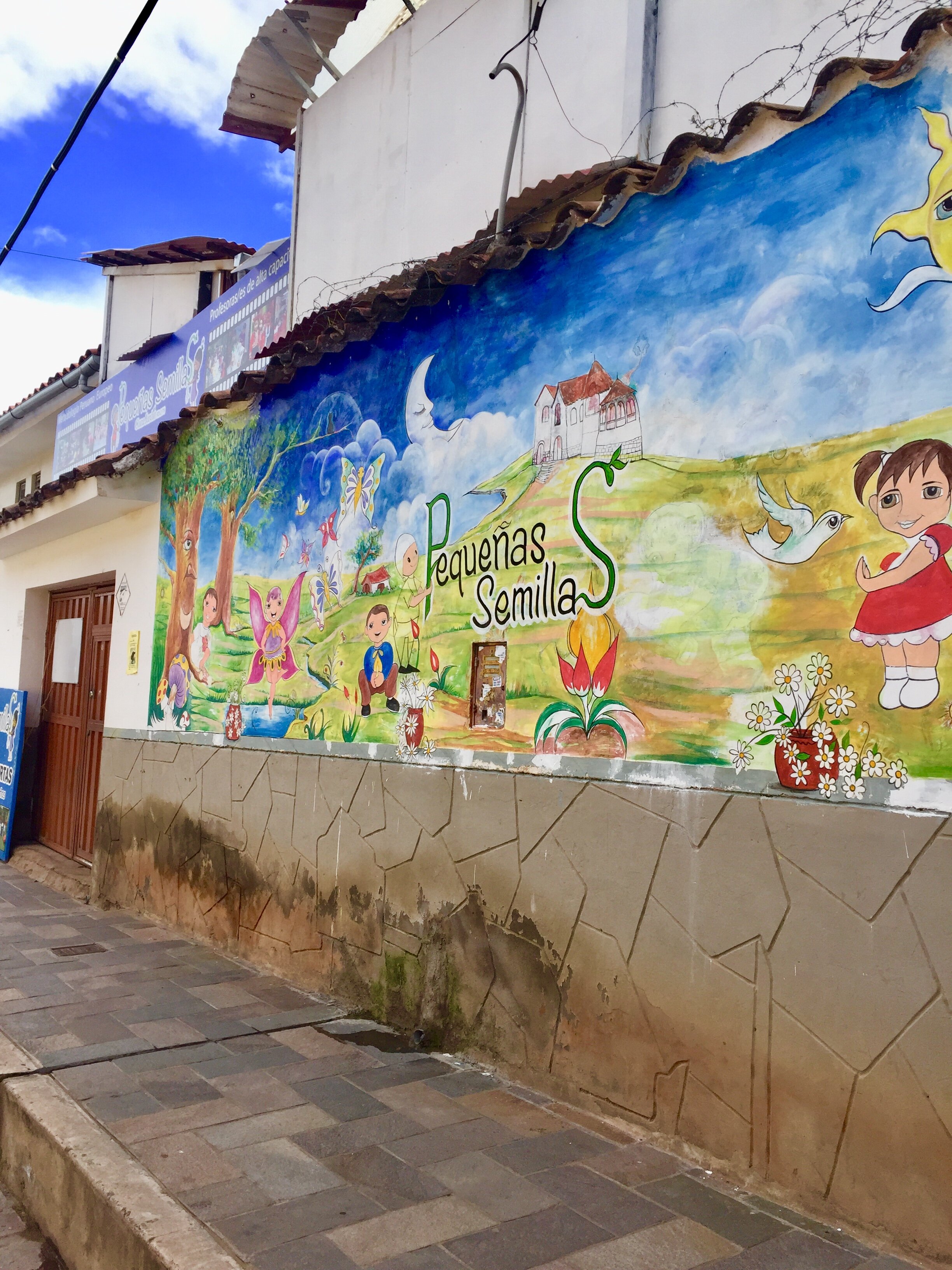
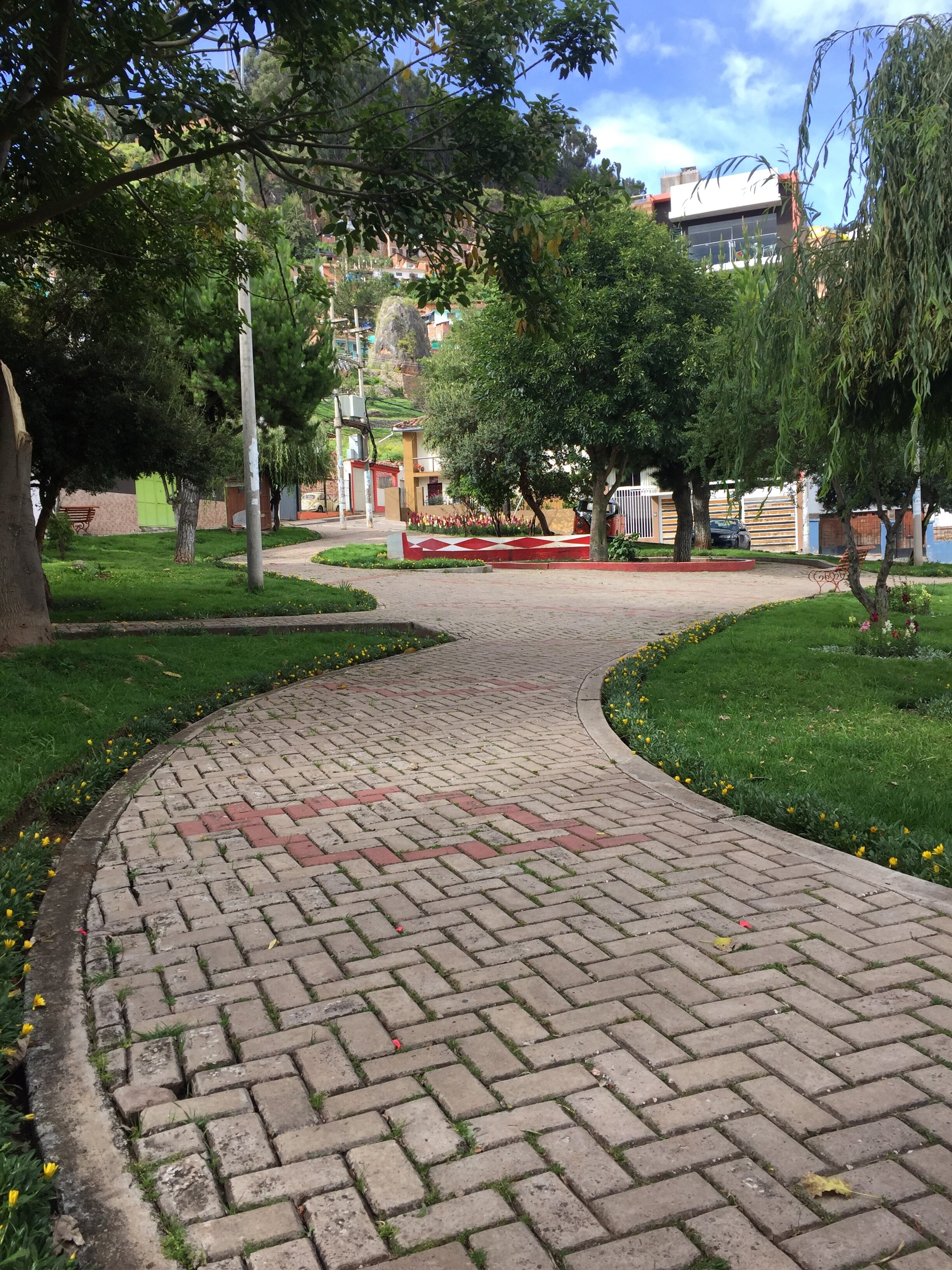

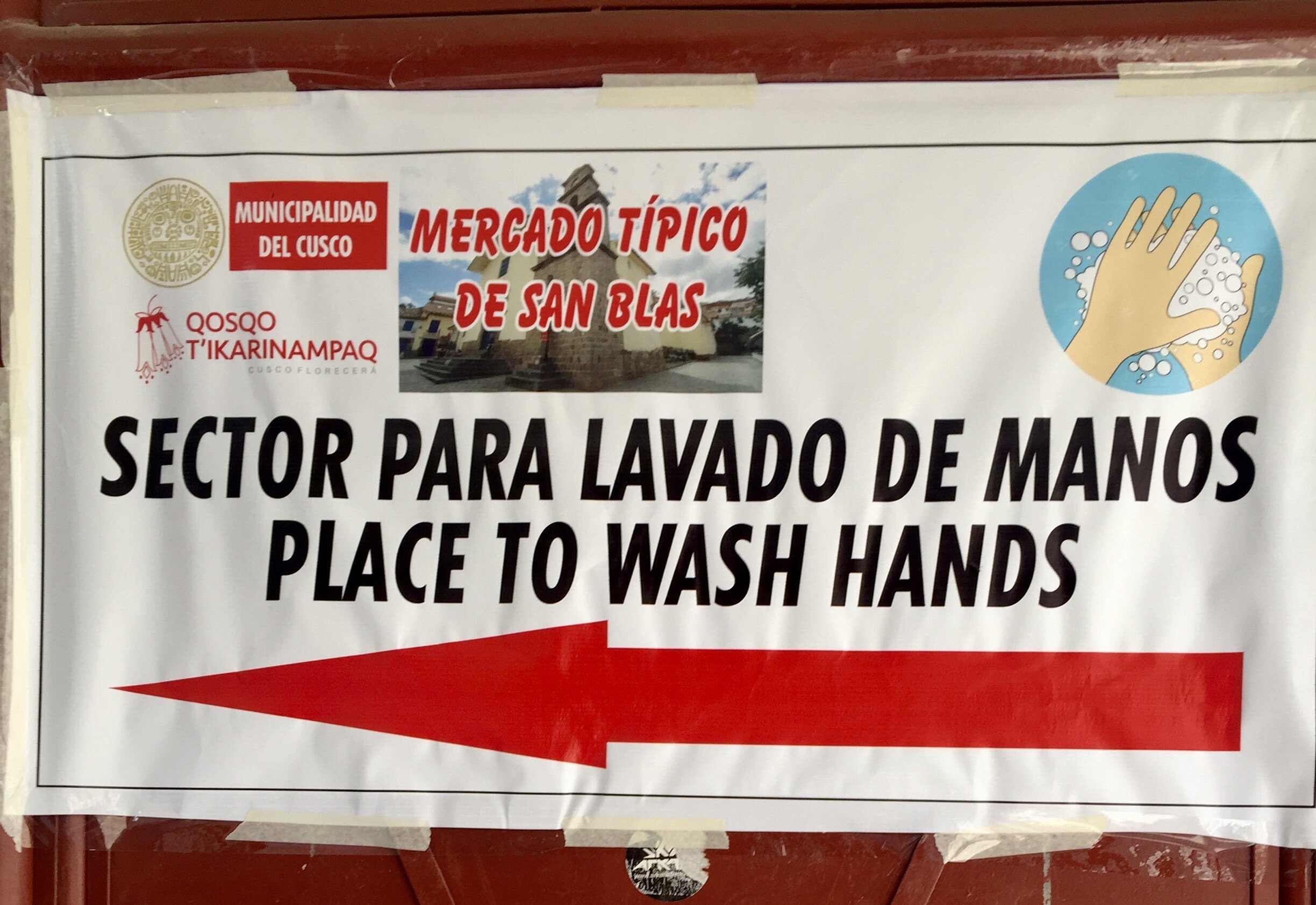
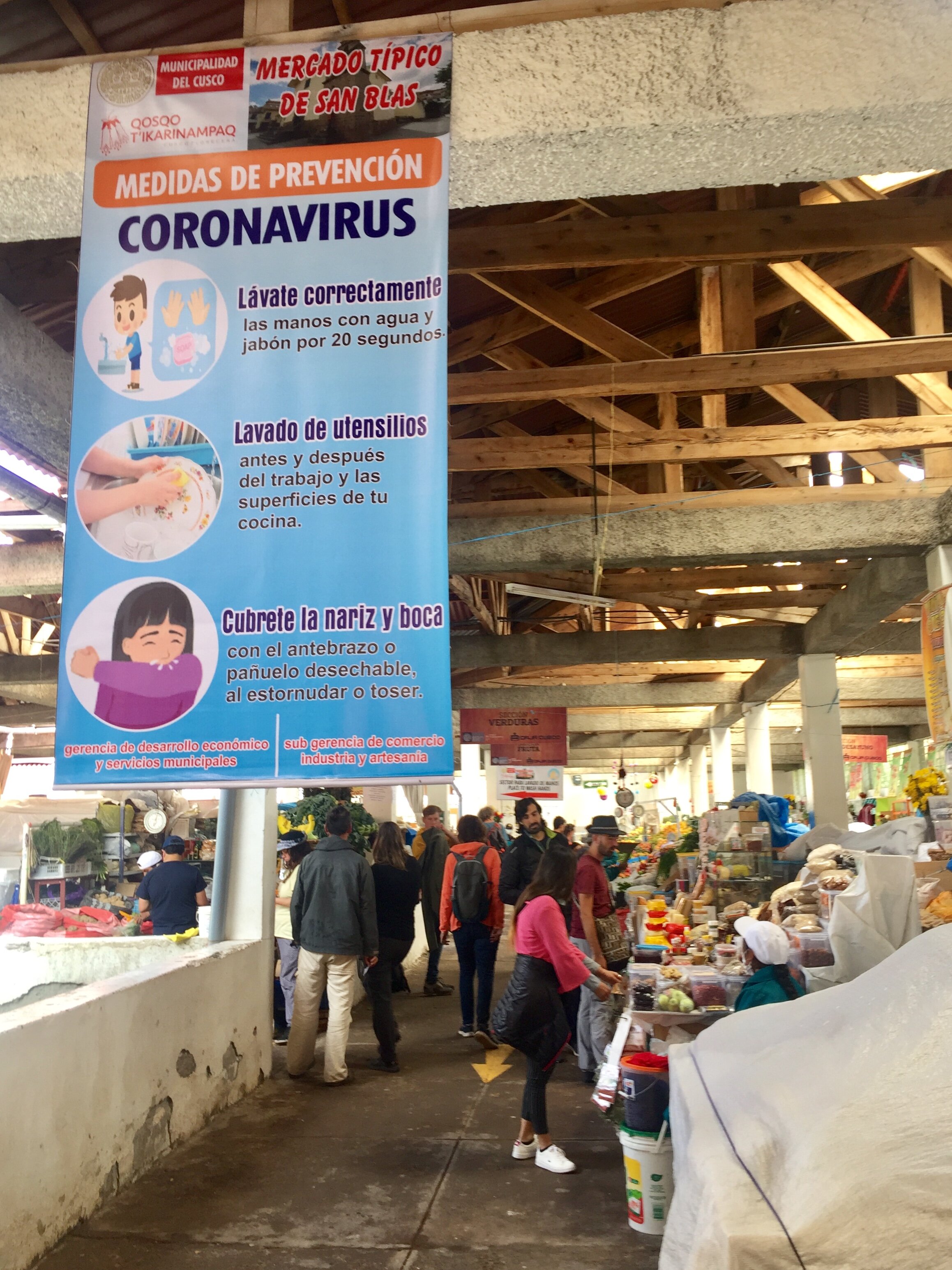
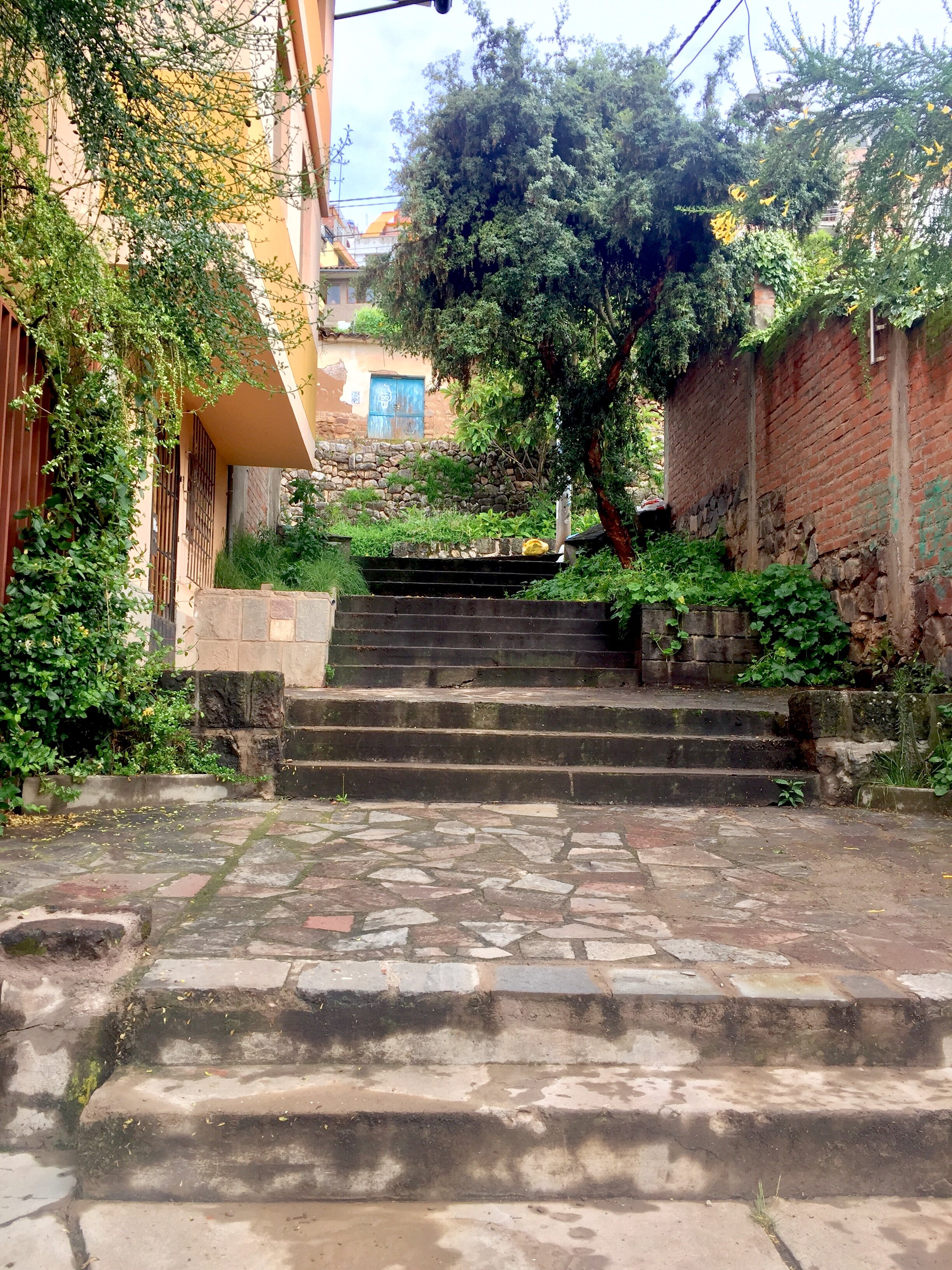
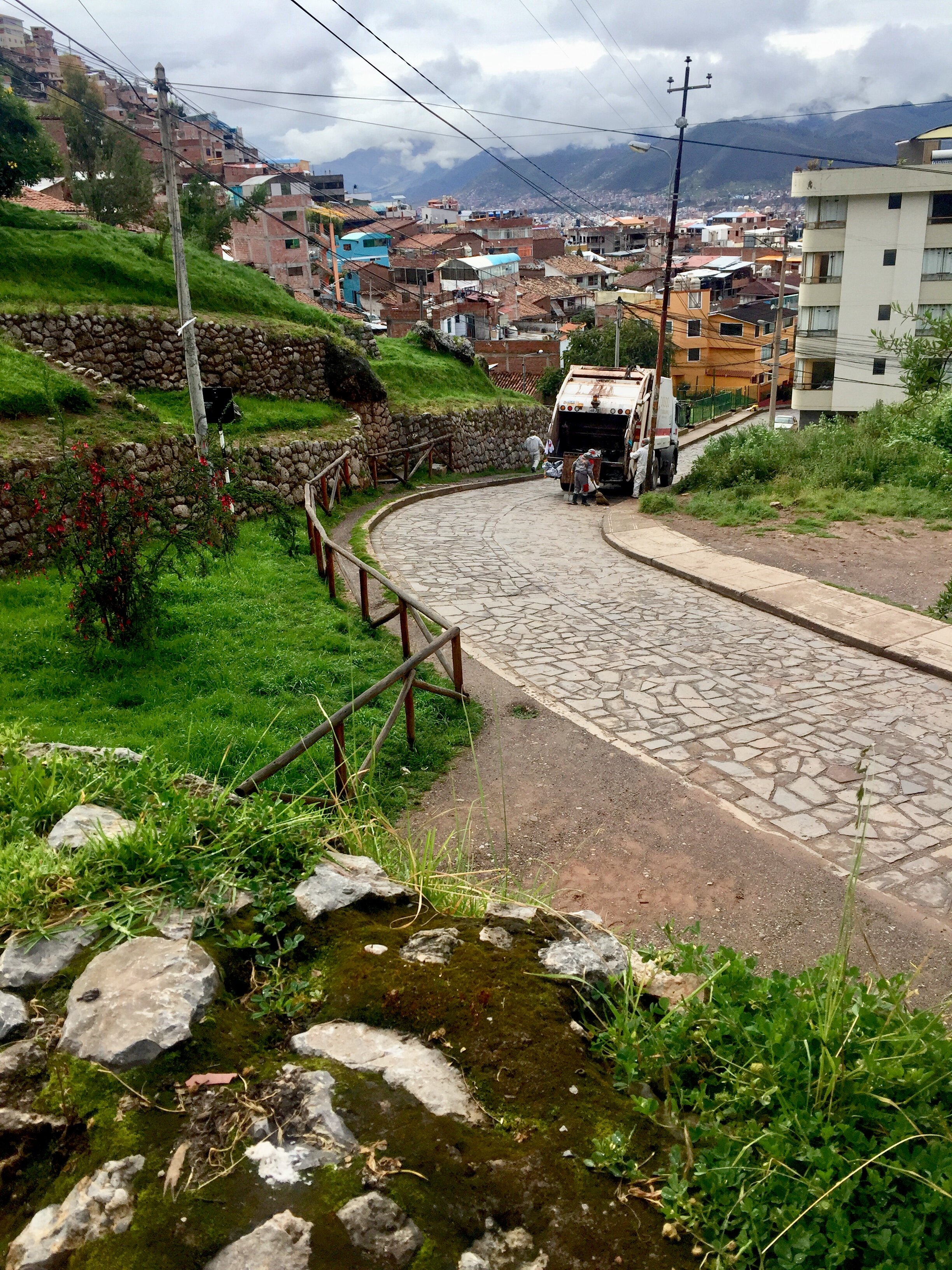
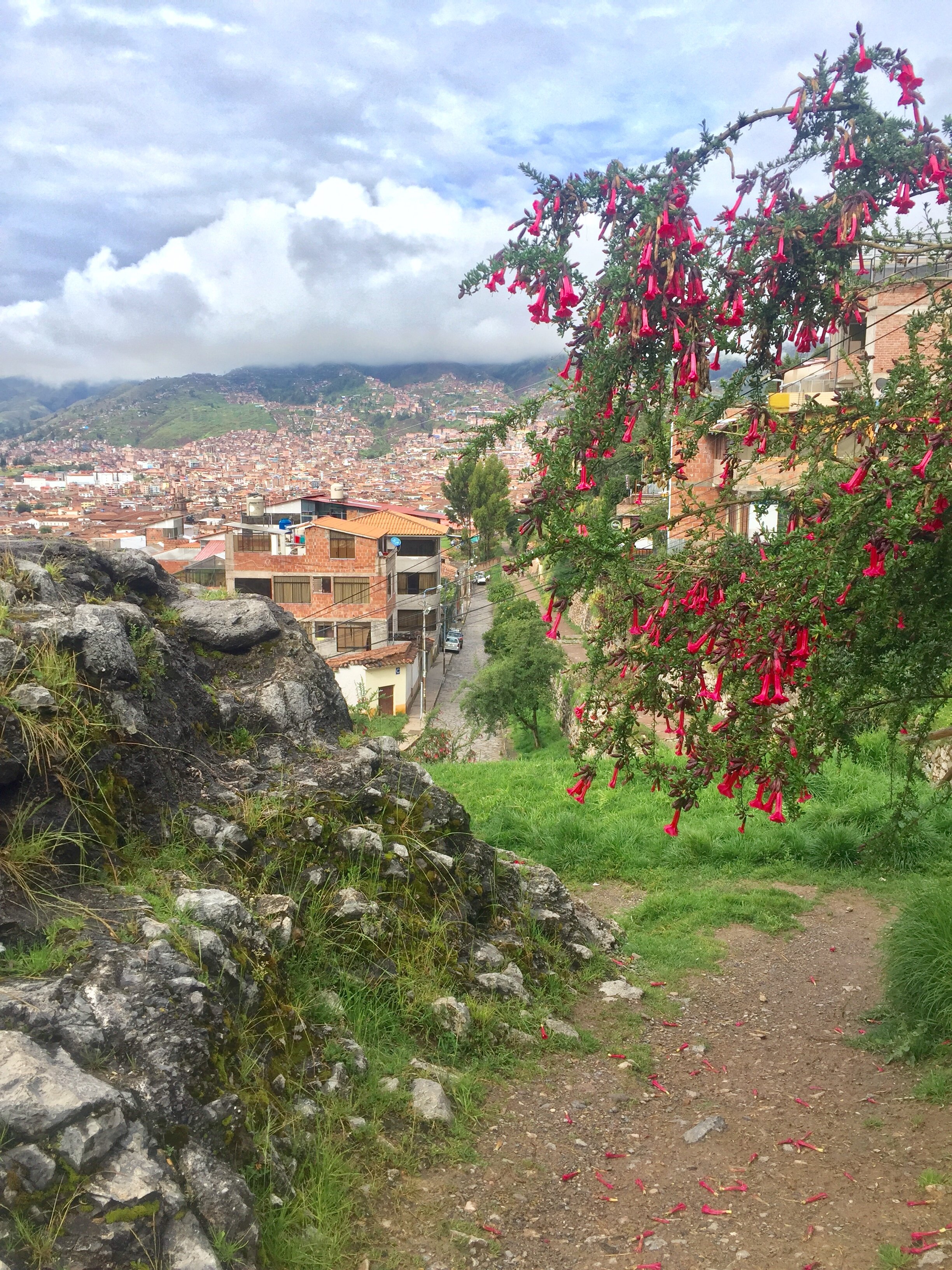
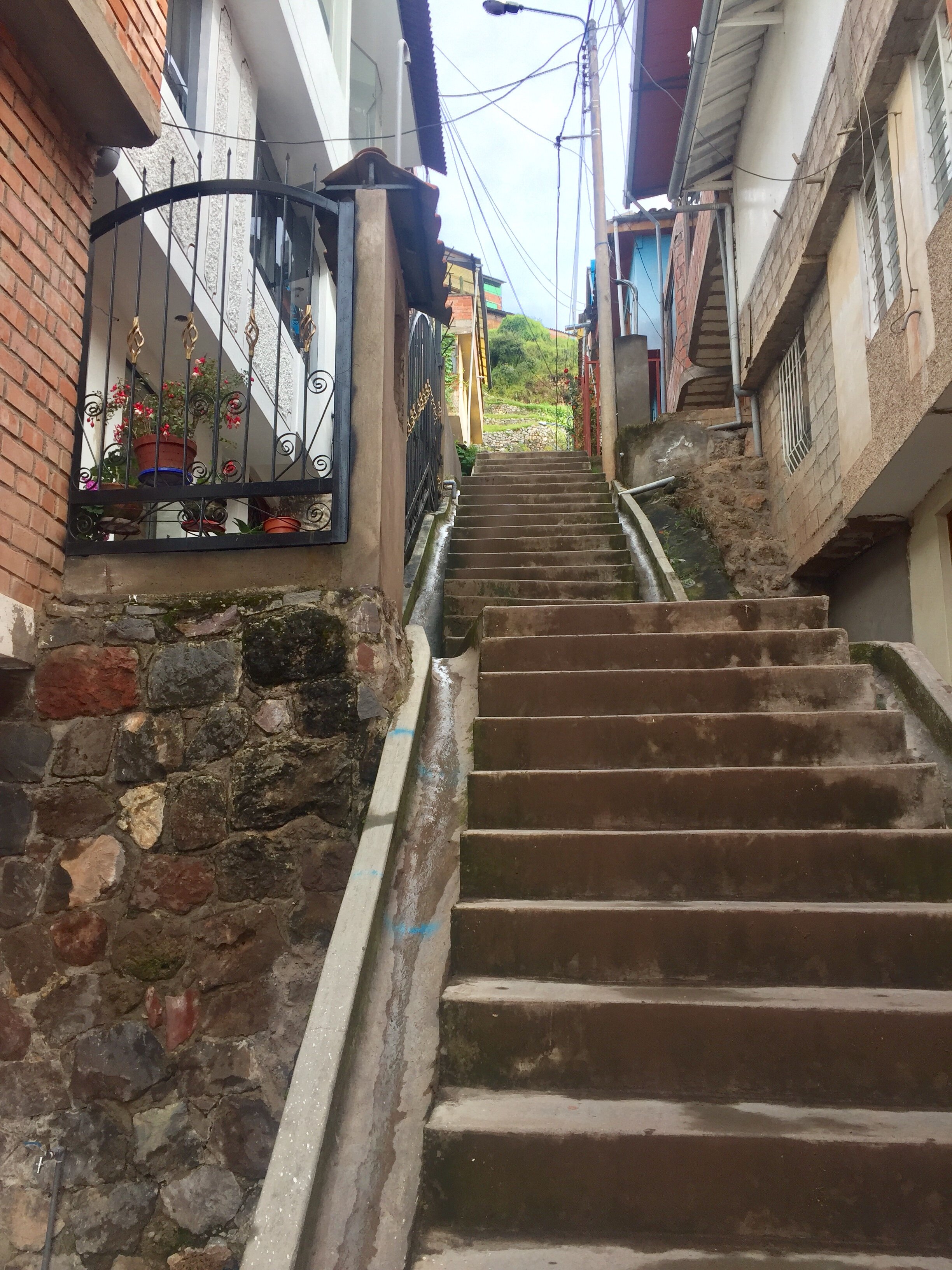
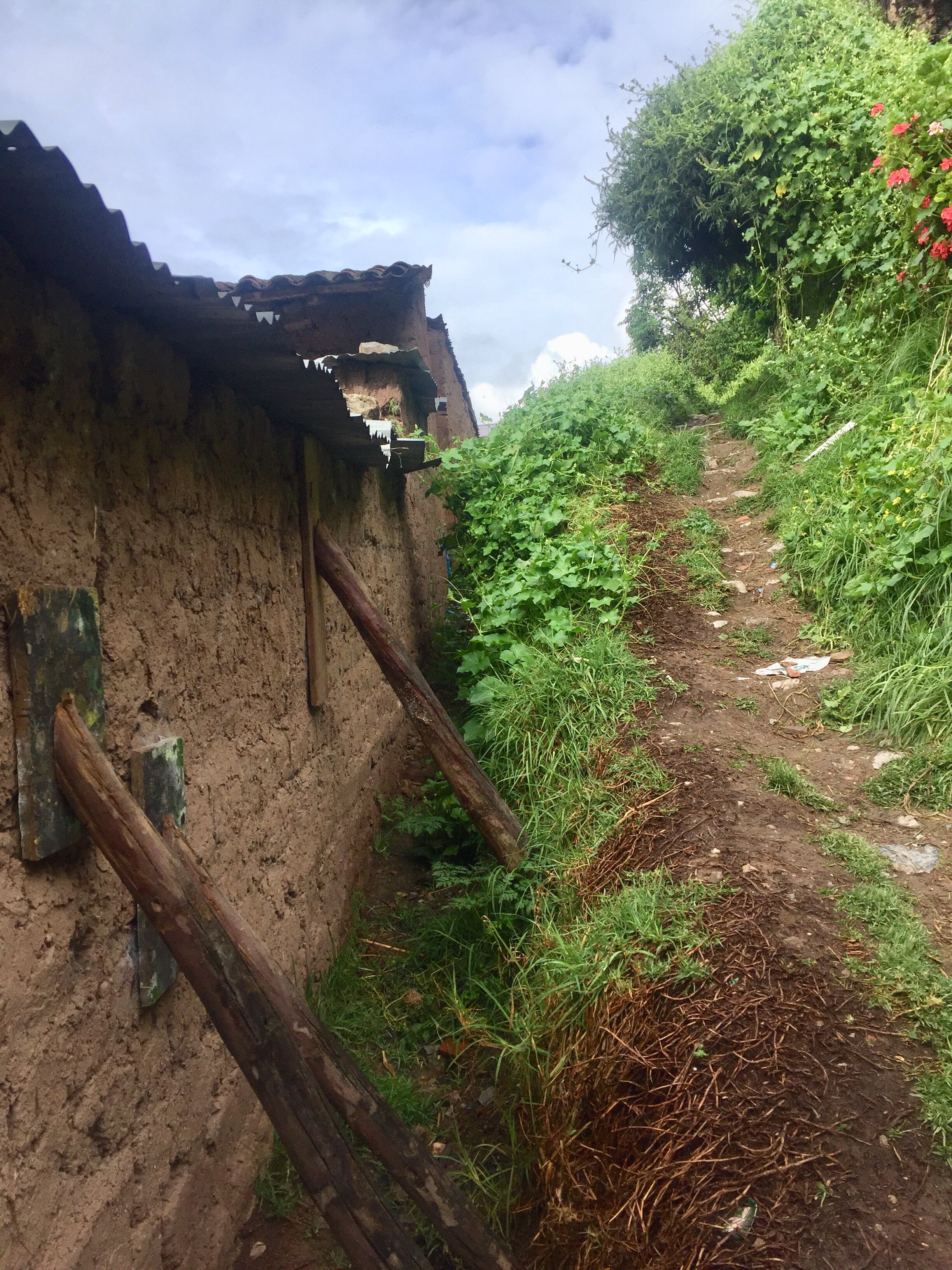
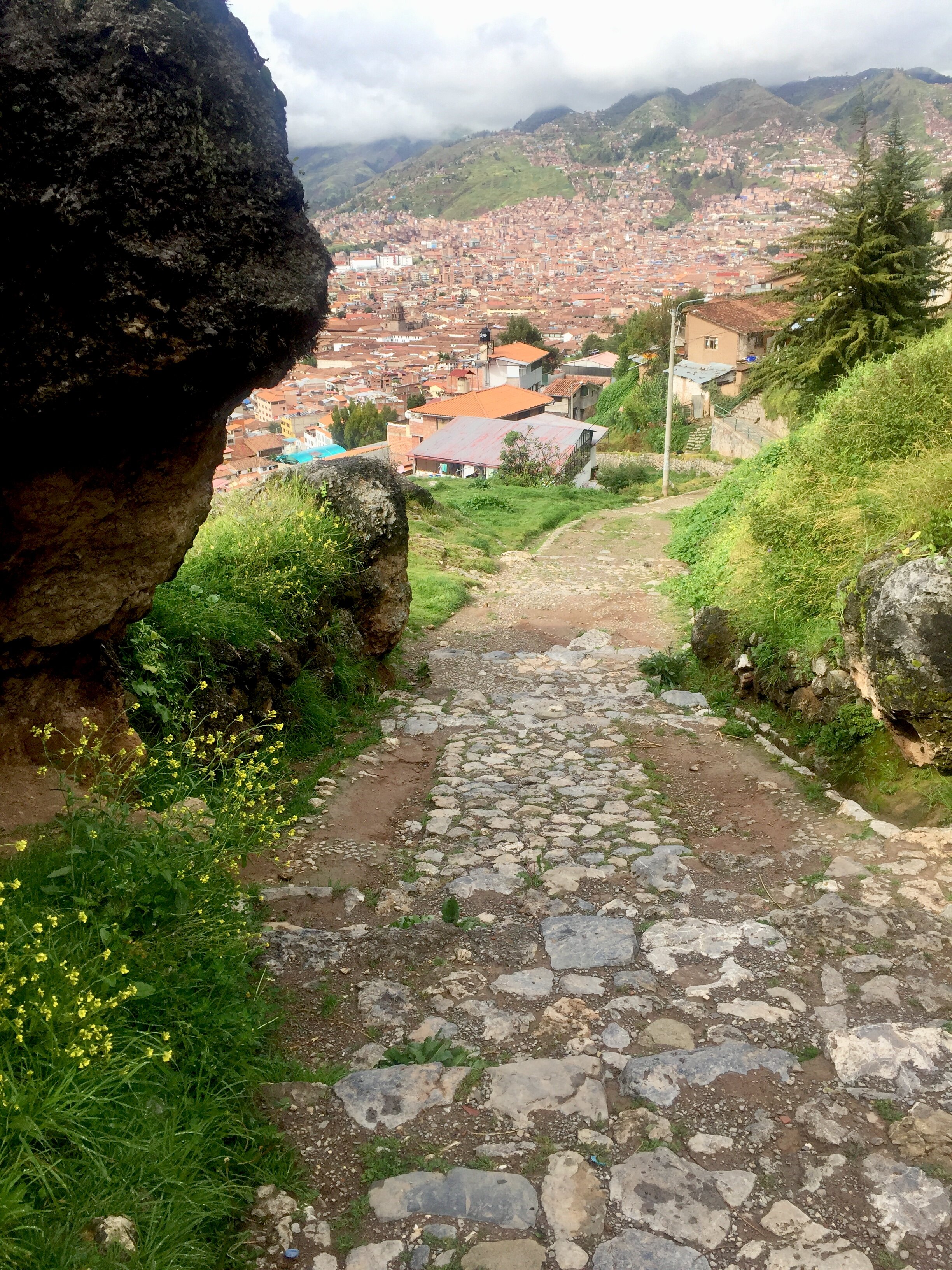

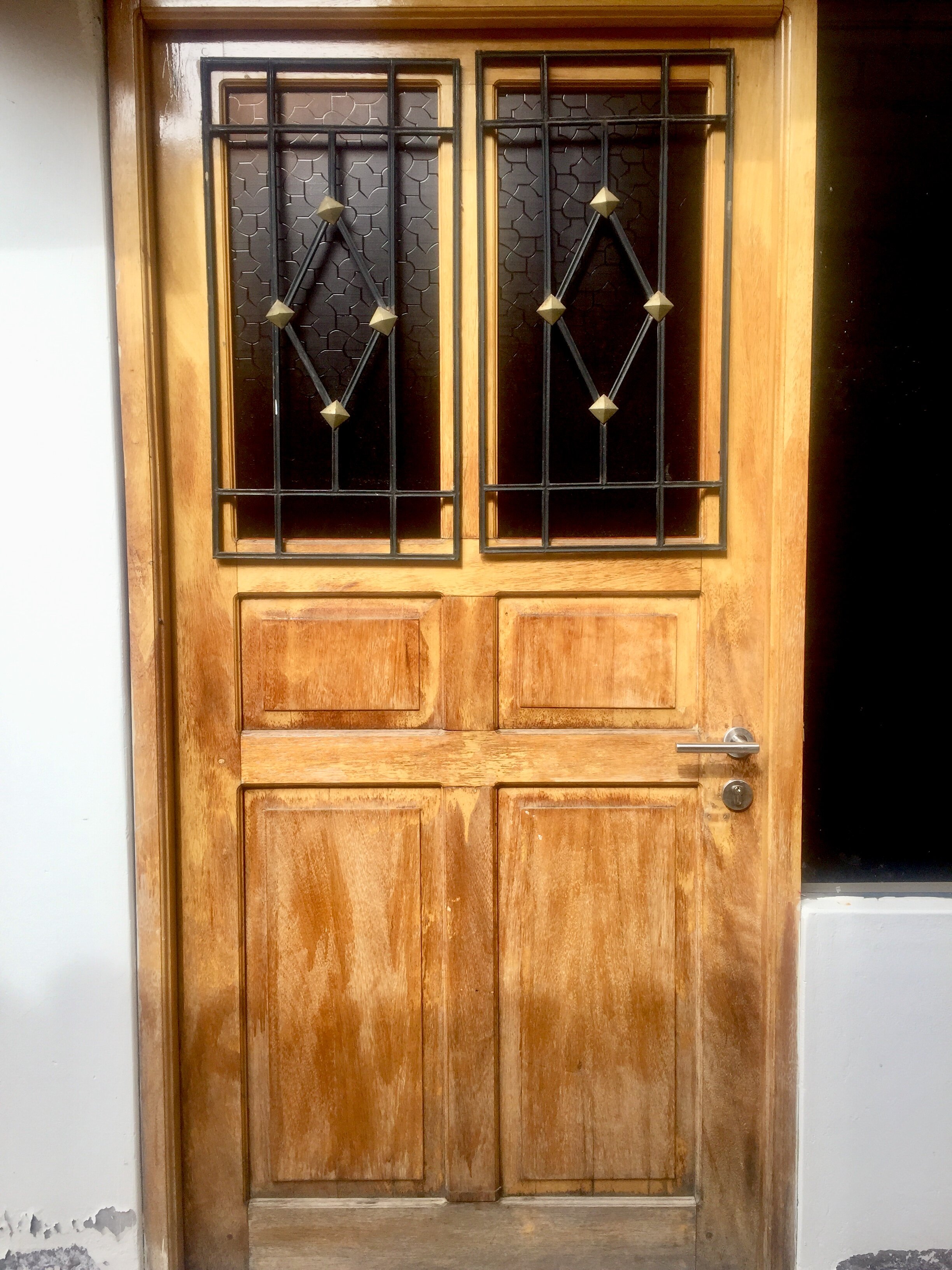
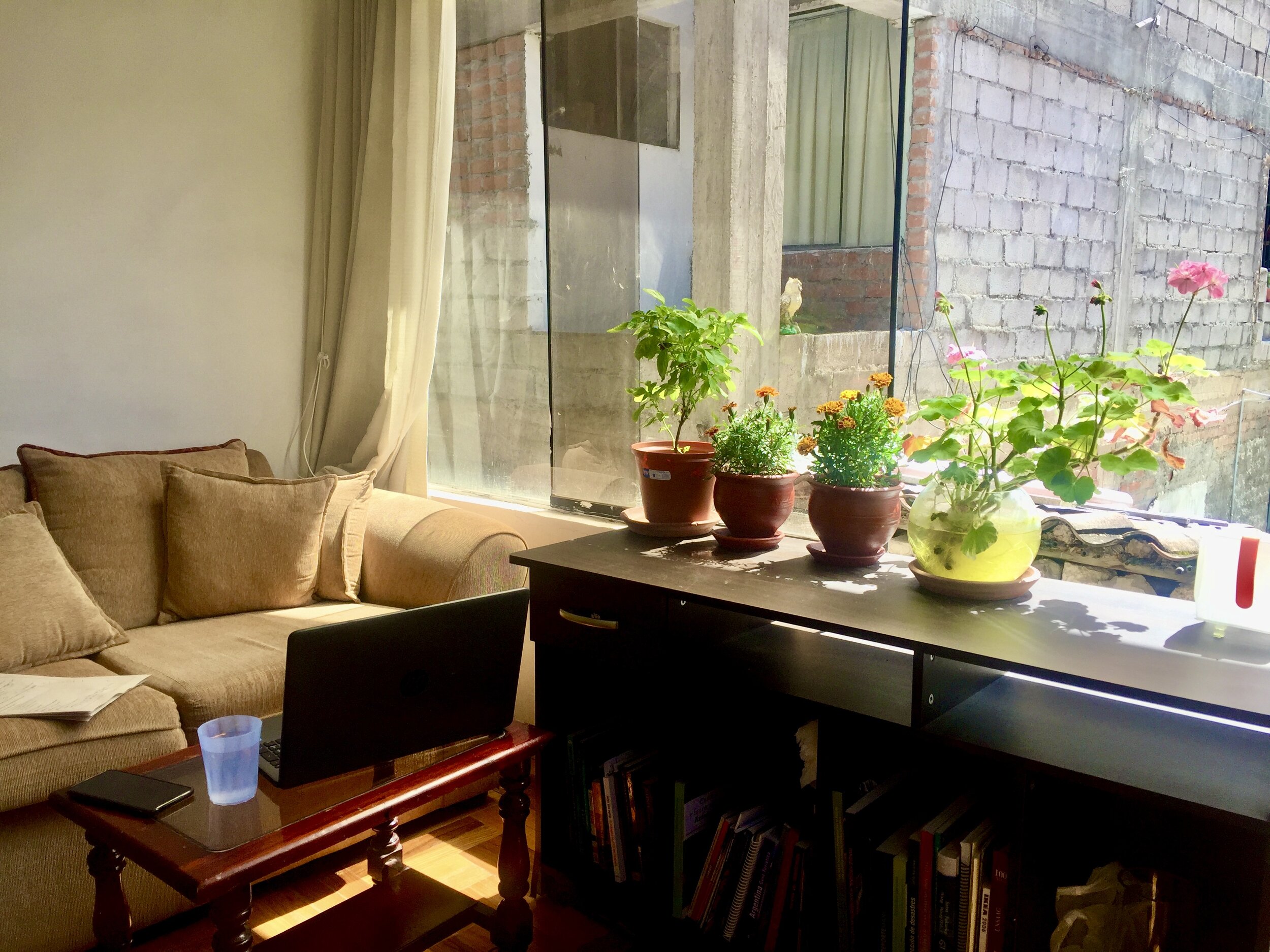
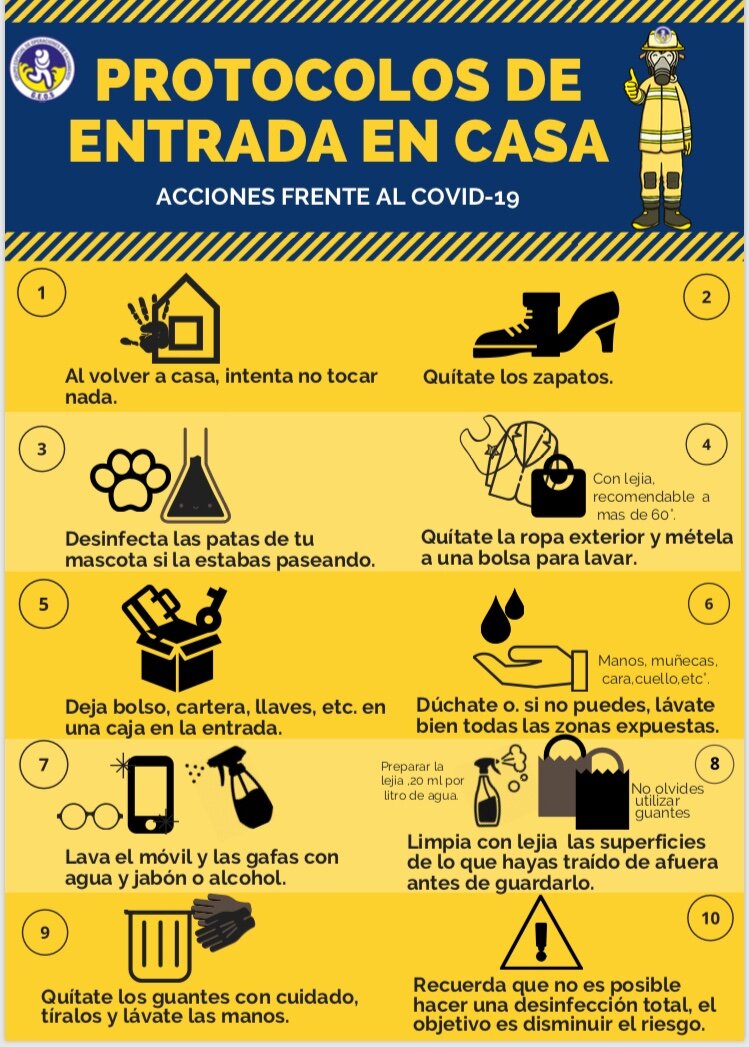

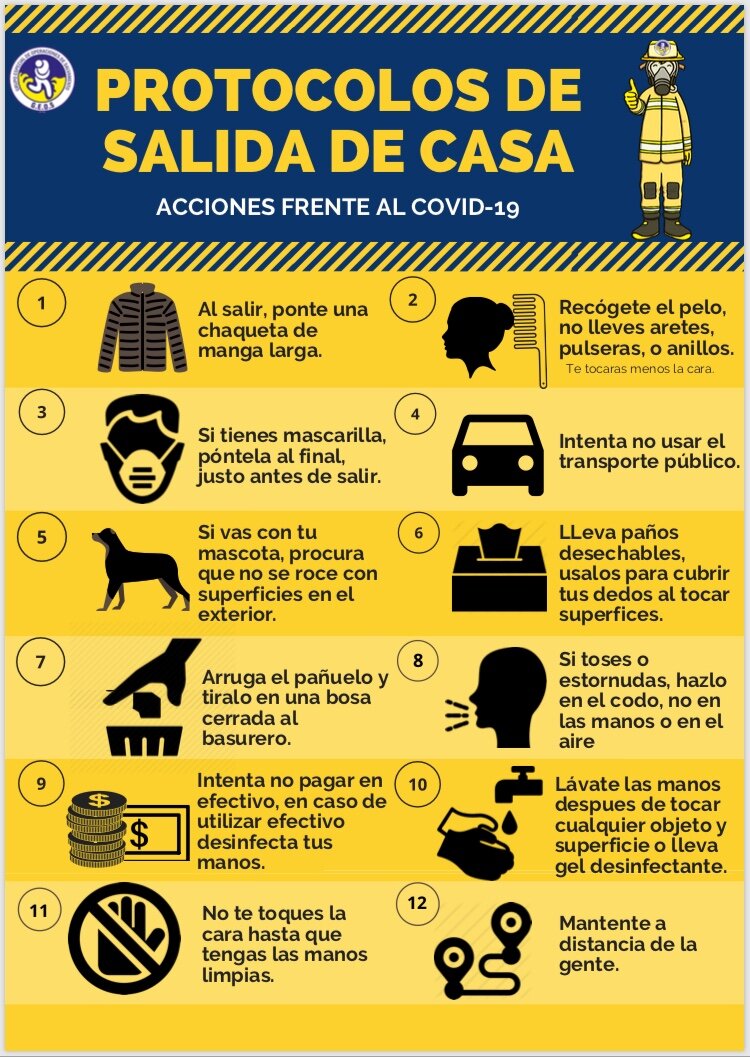
Sunday, 15 March, 2020
At 8pm tonight I watched the president give an address, telling the nation that we Peruvians have been through a lot together and we have to work together to confront a new crisis. The borders are closed as of midnight, today, Sunday. All airports, sea ports and land border crossings are closed tonight. President Vizcarra is calm, reassuring and firm. We will do this together and we will prevent a crisis in Peru.
Starting Monday, everybody will be confined to their homes. We will be allowed out to go buy food, to go to a pharmacy or to get medical help. Essential employees, such as those in hospitals, pharmacies, fire fighters, sanitation workers and city officials will be allowed to go to work. Police and military will be in the streets enforcing this. The president promised that water, electricity and sanitation would continue as normal.
We are inside through the end of the month.
Monday, 16 March, 2020
I got up early to get to work by 7, rather than the usual 9am. Everybody was there, trying to get to the office before the police start cracking down. I was hoping to just grab my computer and dash back home, but I was at the office until after 1pm.
I work at a trekking agency in Cusco, which has been a lot of fun, but which is now very precarious. COVID-19 hit at the worst possible time for the tourism industry in Cusco. We are just recovering from the rainy season, when we typically have very, very few tourists. This year was especially hard because a landslide closed the Inca Trail on January 23. The Inca Trail is normally closed all of February, because of the heavy rains. This year, a landslide killed three people and closed the trail a week early. It’s a financial hit when we lose the groups we had booked to take on the Inca Trail, or any of the other treks that lead to Machu Picchu. This February was so rainy, and so warm, that numerous floods and landslides affected communities all through the Peruvian Andes. The Salkantay trekking route was too dangerous. The Inca Trail was closed. The very popular archeological area in Pisac was closed due to a landslide which blocked the road. Giant sections of glaciers melted off, causing tsunami-like waves of mud crashing down valleys, sweeping away villages and anything else in their way. February brought all kinds of tragedy to the people of the Peruvian Andes.
Then, in mid-February, the government announced that it would not be opening the Inca Trail as usual on March 1st. It would open March 16th. Again, we scrambled, trying to find suitable options for all our clients who had signed up to do the Inca Trail between March 1st and 16th. Another financial blow.
When President Vizcarra announced that Peru was closing the borders and any non-essential services, that also kept the Inca Trail closed before it could open. Machu Picchu is closed. All archeological areas, Incan constructions and other tourist attractions are closed. Even if our clients could enter Peru, we can’t take them anywhere. Our guides are not allowed out of their homes except to buy food and medicine.
Today, Monday, our last group who was still in Peru came back to Cusco from visiting Machu Picchu. They have a flight for tomorrow, Tuesday, but we decided to take them to the airport immediately. I told them to talk with the airlines at the airport and try to get any flight, on any airlines, to Lima. Maybe from Lima, the five of them can get home to Canada. They called me a couple hours later. The airport was already closed when they got there. They are back at their AirBnb, trying to get through the busy phone lines to the airlines. I suggested they also try to contact the Canadian embassy for help.
On the way home from the office, I stopped at the market that is closest to my house. I live in the Lucrepata neighborhood of Cusco and my closest market is the Mercado San Blas. The market seemed somewhat normal, although more stalls than usual were closed. I managed to get some basics: onions, sweet potatoes, fresh peas, spinach, avocadoes, tomatoes, bananas, papaya, pasta and eggs. I had already stocked up on coffee and chocolate over the weekend, while other people were stockpiling rice and toilet paper.
Leaving the market, I saw the laundromat was open and when I asked, they said they were open today only. They will be closed afterwards. I rushed home to get my sheets and towels, which I usually have done at the laundromat, since I don’t have a dryer at home.
Monday afternoon I stayed at home, answering emails of panicked clients that were trying to get home or trying to get to Peru. I checked in with my housemates, to be sure that everybody had food and knew what was going on. I live in a house with three other women: one from the UK, one from Venezuela and one from Switzerland. We opened a bottle of wine and strategized about how to ensure we all had enough food and things to do. I gave the only book I have in French to my housemate from Switzerland.
Tuesday, 17 March, 2020
Today is the first day of full lock down. Call it social isolation, call it quarantine, we are all basically on house arrest. I am not going outside today. I expect that the first day will have more chaos and more police in the streets. I have enough food and I’m going to wait until people have settled in before I try even going across the street to the park.
I am spending most of the day answering emails anyway. I’m trying to convince people to postpone their trips, rather than flat out cancel. Normally, deposits are non-refundable and there are fees for changing the dates of your trip. This is because the Inca Trail permits sold by the government are non-transferable and non-refundable. However, the government has announced that they will be flexible with cancellations and date changes.
This is unprecedented. It’s also unclear exactly how that will work and if only the permits in March are changeable. For now, I’m offering people 100% of their deposit applied to a trip later in 2020, or even to 2021. If they want to cancel completely, we can only refund 50% and only by PayPal. Even with just 50%, with most people willing to postpone, trying to refund those who cancel is a big stretch. We quickly drain our PayPal account, one of our savings accounts and start drawing on a credit card. I’m getting texts from the boss, who is at the bank trying to sort things out. At least the banks are still open.
I’m worried about my coworkers. On Saturday, before the president even announced the border closures and country-wide home quarantine, six people from my office were told to take vacation. This is basically unpaid leave. Today, three more were told to do the same. That leaves me, three people who have been put on part time, with their salary cut in half, and Saul, who owns the company.
I am also very worried about the guides and everybody else in Cusco who works in tourism. This could not come at a worse time. Most guides have worked very little, if at all, in January and February. That’s normal. Everybody saves up for that. The problem is that when February is over, they need to get back to work. Not everybody has savings that will carry them much past February. We were already bracing for the Inca Trail being closed through March 15th. Now we have no idea when tourists can or will come back.
March is shot. With the borders closed, there is no way that tourists will be able to get to Cusco. Any who are already here are not allowed out of their hotels and all of the trails and Inca sites are closed anyway. There will be no income for any of us in March, and the refunds are quickly bleeding out the savings accounts. Even if the state of emergency ends when it is supposed to, and even if the borders open up again on April 1st, April will not provide any income for the guides or the company. Nobody I’ve spoken with thinks that we will actually be able to get back to normal in April.
Honestly, I will be surprised if they can open Machu Picchu in April.
Wednesday, 18 March, 2020
Today I started my morning with more panicked emails of people who are heartbroken that they won’t get to visit Machu Picchu this month. I’m trying to get through all of the March reservations before I tackle April. So many people have planned for years, saved for years and wanted this trip of a lifetime to Peru. Many of them booked their Inca Trail trek a year ago. All of them wanted to see Machu Picchu.
I spent all morning trying to calm and reassure people. The emotional exhaustion of all of these emails is starting to wear on me. Plus I have been notified that we are out of money. We have drained the savings accounts giving refunds and I have to talk people into postponing their trips, not canceling them. We will postpone to 2021 without any fees and transfer 100% of their deposit. Unfortunately, not everybody is going for this and we will have to find a way to get some money for refunds. As of today, the only people left working are me, the manager Dioselina, who is only working part time, and Saul. After lunch I just couldn’t sit back down. I ventured out to walk around the park, which is just across the street from my house. Considering that I could be on my way to one of the nearby pharmacies or corner markets, I didn’t feel like the police would hassle me. I took pictures of the neighborhood Volkswagons, all seven bugs are in their usual places and so is the van modified to be a pickup. I photographed the cacti that I always admire when leaving my street to walk to work. I didn’t venture more than three blocks from home.
Today my parents were supposed to arrive in Cusco. It’s a visit we’ve been planning for months. I really want to show them where I live and work, introduce them to my friends and show them around Cusco. I want to take them on the tour through the Sacred Valley and take them to Machu Picchu. I want them to try the chocolates at Dayna, the chocolate shop I walk by four times a day, on the way to work, home for lunch, back to work and home in the evening. They’re going to come when it’s possible, but obviously there’s no telling when that will be.
Tonight one of my housemates invited a friend over. I’m pretty nervous about having people over. Not only could he have had contact with somebody at the restaurant he worked at last week, but honestly I could have picked the virus up at the wedding I went to last Saturday. It’s only been four days since the wedding. If I have the virus, it could be another week until I have symptoms. Four of us living in one house is bad enough and I’m uncomfortable with other people coming over.
The four of us all had quite a bit of exposure to people last week, before the State of Emergency was declared on Sunday. My housemate from England teaches English and was exposed to all of her students. My housemate from Venezuela works in a restaurant and was exposed to tourists from all over the world. My housemate from Switzerland volunteers at an orphanage and was exposed to all of the children there. My office job kept me away from people, especially since we haven’t had any new groups able to get to Peru for about a week anyway. It’s the wedding that was my big exposure hazard. As long as I don’t get exposed during quarantine these 15 days, I’ll know for sure that I didn’t catch it at the wedding by April 1st.
Thursday, 19 March, 2020
Today I tried jogging in the morning, hoping that nobody else would be out yet. I did see a couple other people, but I was running down the middle of the street and they were on the sidewalks. It’s kind of nice to be able to run right down the middle of the street. Pedestrians do not have the right of way in Peru and on a normal day it would be suicide to run down the middle of the street. However, these days have been anything but normal.
During my jog I went by the San Blas market, expecting it to be closed like it was Tuesday and Wednesday. I was shocked to see people unloading cars, carrying big wooden crates of produce into the market. Peeking in through the doors I saw people in hazmat suits spraying down the cement floors and pouring bottles of bleach in a big tub. As soon as I got home I texted my housemates to let them know that the market was going to open and I planned to go get more food. Even though we’re keeping the shared kitchen clean, we’re all spending most of our time in our rooms, texting back and forth between the four of us.
I grabbed my wallet, a couple fabric shopping bags, a bottle of hand sanitizer and a mask. I have always carried a couple hospital masks in my first aid kit, just in case. I could have never imagined needing to use one of them in these circumstances. It’s not that I’m particularly afraid of breathing in the virus. I’ve read too much about how masks don’t actually keep you from getting the virus. It’s that I don’t want people to be afraid of me. The women in the market that I usually buy from know me. They know I live here and haven’t traveled out of Cusco in a while. They see me all the time. It’s the people who don’t know me that I don’t want to scare. I look so obviously foreign and tourists were arriving from Italy as recently as a week ago. I could look Italian, to a person who doesn’t know me.
When I got to the San Blas market, there was a giant water tank and a pipe with 3 spigots coming from it next to a table with bottles of liquid soap. I washed my hands, stepped through the tub of bleach to sanitize my shoes and put on my mask. The people who know me were happy to see me, but others kept their distance. I bought tomatoes, cucumbers, onions, sweet potatoes, garlic, ginger, fresh peas and tarwi from the woman I usually get vegetables from. Tarwi is the seeds of a domesticated variety of lupine. The seeds are normally very toxic, but this variety has lower toxins. You still have to soak the seeds, and I bought them wet, pre-soaked. My friends who are guides here tell me that it will be the next superfood to go global. Peruvian quinoa definitely has gone global and is a superfood in many ways. I’ve been meaning to learn what to do with tarwi and now I should have plenty of time to figure it out. Previously, I’ve had it raw in salads or made into a puree and served as a side dish like mashed potatoes.
At the market I also got a kilo of dried black beans, a couple papayas, a couple mangoes, a kilo of bananas and two avocados from my usual fruit vendor. She looked happy to see me and laughed when I had to take my mask off because my glasses were fogging up. I do not know how to wear a mask without fogging up my glasses. I’m sure there’s a youtube video that could help me on that one, but I still haven’t bothered to look for it.
On the way home I stopped in the corner market for a bottle of Chilean 2017 Cabernet Sauvignon and a bottle of bleach, then stopped at the bakery, simply because it was open. The bakery looks closed but there is an arrow on the door that points to the window, with a sign saying that they will take orders through the window. There is a grill of metal bars on the window and the baker stood back several feet to take my order, even though I had put the mask back on and she knows me. For 1 sol, which is less than 30 cents, I got five whole wheat rolls. Ordering my bread, I noticed that she had just taken a giant sheet of croissants out of the oven, so I ordered 8 croissants, which was only another 4 soles, just over a dollar.
Back home I texted my housemates that I had brought back two croissants for each of us. Individually, they snuck out of their rooms to come get their croissants and thank me. It is starting to feel normal how much we are avoiding each other.
The rest of the day I was stuck with my laptop, wading through work emails, trying to figure out how to respond to people who wanted to cancel or wanted reassurance or wanted to change the dates or wanted something that I just couldn’t figure out. Most of the people who write to us are native English speakers, but enough aren’t that I am sometimes at a loss to know exactly what they are trying to communicate to me. Taken all together, these emails are so discouraging. I wish I could be more reassuring, more confident that by May, of course, everything will be just fine and you will love your trip to Machu Picchu!
Tonight is the first night of curfew. Everybody must be inside by 8pm and we are not allowed out until 5am. As with the police and military enforcement of the quarantine, this makes me uneasy but at the same time comforted. I want to know that people are taking the quarantine seriously. If they’re not taking it seriously, I am actually relieved to know that the police or military will change their minds. This does not make it easier for me to cheerfully reassure people that yes, you will be able to reschedule your trip to Peru. Yes, you will get to see Machu Picchu in 2020! Yes, it will be safe to travel to Peru, soon, very soon! We appreciate your patience!
Friday, 20 March, 2020
Today I am not leaving the house. I am going to contact all of the groups who have booked with my trekking agency in April. I’ve already communicated with everybody from March and more than half of our April reservations too, but there are some I haven’t heard from. I’ve drafted an email which I hope conveys that Peru is taking this seriously and will prevent a big outbreak, that we are taking this seriously and will protect our guests and staff members, that they should keep their booking with us and just postpone it to later in 2020 or even to 2021, that we are being generous by applying their deposit (which is usually non-refundable and non-transferable) to another trip without any fees, that they will have a fantastic trip to Peru when things settle down and that they don’t want to ask for a refund. This strategy works for some, not for others. We have already sent so many refunds that Saul told me we cannot send any more. I cannot offer any more refunds. People who insist repeatedly on a refund can be offered 50% but not for another 20 days. We don’t have any money to refund.
I spent most of the day on email, taking breaks to Facetime with friends, message others and find out what my friends around the world are going through. My parents in Idaho are home and staying away from people, when they do go out. I have friends in various forms of quarantine in France, Chile, Laos, England, Morocco, Canada, Australia, Costa Rica, Bali and all over the US. Today one of my friends, who has been in the US for three months, is going back to Shanghai. I have no idea what to think about this. She’s in a hotel in Shanghai right now, waiting for a COVID-19 test. If she tests negative, she’ll get to go back to her apartment with her cats and be in quarantine for another 14 days.
I can’t answer any more depressing, desperate emails. I can’t focus on my book. I can’t handle reading any more news. I’m spending the rest of the evening with Netflix. It’s exactly the escape I needed. Why didn’t I do this earlier in the week?
After the first two episodes of the second season of the British show Sex Education, I made the mistake of checking my email. Not work this time, but my personal email. At the top of my inbox, sent four minutes ago, is an email from the US Embassy in Lima. The email starts: The Peruvian Ministry of Health confirmed 263 cases of COVID-19 in Peru as of Mar. 20, 2020 at 1:00 PM.On March 14, the Department of State authorized the departure from any diplomatic or consular post in the world of U.S. personnel and family members who have been medically determined to be at higher risk of a poor outcome if exposed to COVID-19.In response to the ongoing COVID-19 outbreak the Peace Corps are in the process of evacuating their Volunteers from Peru.On March 20, the U.S. Embassy repatriated a group of medically vulnerable U.S. citizens in country, as well as a limited number of Peace Corps Volunteers and U.S. Embassy personnel and family members.
I was a Peace Corps Volunteer in Morocco 2005-2007. I know that they do not take evacuation lightly. I served in Peace Corps at a time when terrorists were bombing the US Embassy in Rabat, when there was active terrorism in Morocco. I lived in Bangladesh during the elections in 2013, when the streets were often so violent that I had to stay home for days at a time. I heard bombs go off in my neighborhood and tried to not look at the news, which always led with the death toll from the day before, not from a virus, but from people actually killing each other. I lived in Istanbul when the US Embassy in Turkey was sending me messages about what areas of the city to avoid because of the violent protests there.
Somehow, none of those other messages from US Embassies rattled me so much. This feels very different. The terrorism in Morocco, clashes between civilians and police in Turkey and wildly violent political protests in Bangladesh all seemed like temporary problems. It would be unsafe for a day or two, at most five, then things would go back to normal. I just stayed home and was fine. I was never at any risk of anybody coming to my home to hurt me. It was scary, but never felt like something I couldn’t get through. I never felt unsafe at home.
This feels very different. Embassy employees and Peace Corps Volunteers are evacuating from Peru. Countries all around the world are closing their borders. I have only been on forced home quarantine for five days, but even if the quarantine is lifted on March 31, what kind of restrictions will be in place? Would I be safe if I was allowed to go back to my normal life here in Cusco? Do I want to go back to my normal life here in Cusco?
I will honestly be surprised if the State of Emergency declared by President Vizcarra will actually end on March 31. The news around the world seems to show that this will not be over with a 14 day quarantine. That is probably what makes this feel so very different. There is no end date and nobody has any idea what will happen in Peru, or in any other country, for that matter. We simply do not know.
Saturday, 21 March, 2020
I have to go outside. Yesterday I didn’t even go downstairs. I will not make it another ten days if I can’t go outside. I don’t care if I am only allowed outside to buy food and medicine. I have to see green around me and walk somewhere.
I get up early, but not as early as I wanted to, put a load of laundry in the washing machine and sneak out of the house. I walk uphill, towards the edge of town, which really isn’t that far. I pass one guy who seems very friendly, greeting me in Spanish and asking first if I’m from Germany. When I say no he asks Belgium? I say the United States and he welcomes me to Peru. I didn’t want to stop to chat and tell him that I live here, that I’ve been here since long before COVID-19 had infected any human beings, that just like most of Cusco, I work in tourism and that I’m afraid I won’t have a job in a few weeks. One trekking agency already declared bankruptcy. I don’t know how long we will hold on.
The only other person I see is an elderly woman who covers her face with part of her cardigan when she sees me and refuses to make eye contact when we walk past each other. At least she does answer my “buenos días” as she hurries past me.
I avoid streets, knowing that the police and military will not think it’s such a great idea to just go for a walk. Even alone. Even early in the morning. I should not be doing this.
I walk up stairways, behind houses to other smaller paths, leading up to a section of what was an Inca trail. It’s one of the many thousands of miles of Inca trails that are still found all over South America, from Colombia down through most of Chile. The Qhapaq Ñan, as the network of trails are known, spreads from Cusco north to Ecuador and Colombia, east throughout Bolivia and south to Argentina and Chile. I love walking on these paths. They are wide, paved with stone, feel so very ancient and remind me of one of the reasons I wanted to move to Peru in the first place.
I first visited Peru in 2013 and returned several times, including last March, 2019. It was just a year ago I was here once again as a tourist, leading my second group of high school students from Redmond, Washington to trek the Inca Trail. After I returned home to Seattle, in April 2019, I decided I should just move to Cusco.
I love Peru. I love the country, the people, the mountains, the jungle, the history, the wildlife and the fun mix of Spanish with a few Quechua words tossed in for foods, places and other names. I moved here to learn more about all of those things. I did not come here to learn what would happen in Peru during a global pandemic. I did not come here to see what would happen if a massive outbreak were to start in a country with only the most basic of healthcare systems. I hope I do not have to witness that.
Back home nobody else is up yet. That’s normal. I always get up early. They always sleep in. What did not used to be normal is my morning bleach routine. I put on rubber gloves, soak a sponge or cloth in bleach and wipe down “high traffic” surfaces. I wipe down the handles on the microwave and fridge. I wipe the knobs on the stove and the handles on the tap and water filter. I wipe the other doorknobs in the house and all of the light switches. I even wipe the handles on the broom and dustpan. This does not feel like paranoia. This is just part of the new normal.
I make my usual pot of coffee and fruit smoothie. Today I used my last mango, although I still have plenty of bananas and papayas. Over coffee I check my messages and am so happy to see some good news! My friend in Shanghai tested negative for COVID-19! Now she is home with her cats who are giving her the cold shoulder, obviously mad that she was away for a couple months. Even seeing her photos of the cats turning their backs on her make me smile.
I grab my work computer and settle down to my morning emails and work related messages. The first message from Saul is “The only option is rebooking. No refunds at all.”
There are fewer emails than yesterday, and many of them want to postpone their trip. Unfortunately, there are also some who want refunds. I am not used to saying no to people. There are a lot of skills that cross over from my 12 years as a teacher and my new role in customer service, in sales. Saying no is not one of them. Saying no is something that I got good at as a teacher. Kids need to know where the boundaries are. They will test them, but deep down they just want to know where they are. The simplest way to enforce a boundary is with a calm, confident no. I said no a lot, as a teacher.
In my new job at the trekking agency I don’t say no. I say that I will figure it out. I say that I will find a way to make it work. I say that if I can’t get it, I have a whole team of professionals who will get you what you want.
Working from home, I no longer have a team. I have very little direction and I have to start saying no to people. I would rather tell them that I have enough on my plate at the moment and that I will get back to them in a week or two. I know I can’t do that, but I wish I could. I don’t usually work Sunday morning. Maybe tomorrow morning I’ll sleep in like my housemates. I’ll bury myself under the blankets, with my heating pad, and try to sleep through the day.
